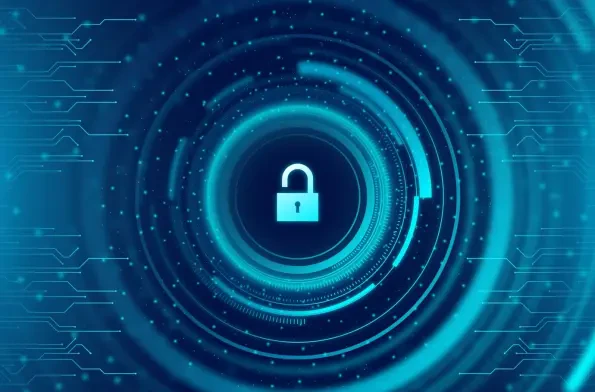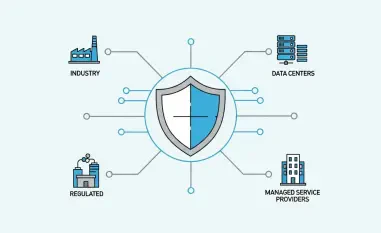In the rapidly evolving landscape of cybersecurity, Malik Haidar stands out as an authority, merging deep technical expertise with a keen understanding of business dynamics. With years of experience mitigating threats in multinational corporations, he brings a unique perspective to cybersecurity strategies, emphasizing the importance of aligning security measures with business objectives. Today, Malik sheds light on the UK’s Cyber Essentials scheme and its significance in enhancing national cyber resilience.
Can you explain the UK’s Cyber Essentials scheme and its purpose?
Cyber Essentials is a UK government-backed scheme designed to help organizations protect themselves against common cyber threats. Launched in 2014, it’s aimed at providing businesses with fundamental security measures to defend against internet-based threats. By implementing these basic controls, organizations can mitigate risk and improve their overall security posture.
How many UK organizations are currently certified under the Cyber Essentials scheme?
As of now, there are approximately 35,000 UK organizations that have achieved Cyber Essentials certification. This number indicates participation but also highlights the gap when considering the total number of businesses in the UK.
What gap exists between the current number of certified businesses and the total businesses in the UK?
With 5.5 million businesses operating in the UK, the current number of certified organizations falls significantly short of expectations. This discrepancy underscores the need for increased adoption and awareness of the scheme’s benefits among businesses.
What are the observed impacts of the Cyber Essentials scheme on organizations that have participated?
Participating organizations typically report enhanced resilience to cyber threats. The scheme provides a structured approach to security, backed by evidence indicating that these practices effectively mitigate risks. As a result, businesses that embrace Cyber Essentials see improvements not only in their security measures but also in their overall confidence in handling cyber threats.
Why does the UK government prioritize increasing the number of Cyber Essentials certifications?
The government recognizes that widespread adoption of Cyber Essentials can dramatically enhance national cyber resilience. As cyber threats become more sophisticated, having a significant portion of businesses fortified against basic attacks reduces vulnerabilities on a national scale. It’s a strategic move to ensure that the UK’s business ecosystem is robust against potential disruptions.
How does the requirement of Cyber Essentials compliance for government contracts impact businesses?
The requirement for Cyber Essentials compliance in government contracts acts as a strong incentive for businesses, especially those handling sensitive data. It creates a baseline security standard that businesses must meet, encouraging them to adopt better security practices to qualify for lucrative government work.
Is there government funding available to support organizations seeking Cyber Essentials certification, and if so, which sectors benefit?
Expanding government funding to support Cyber Essentials certification is currently under consideration. While details are still developing, the focus is likely to target sectors that handle critical and sensitive data, ensuring they have the resources needed to achieve compliance and safeguard their operations.
What initiatives are being considered to make Cyber Essentials less intimidating for small businesses?
To make Cyber Essentials less daunting, efforts are being made to create clearer guidance and pathways, tailored specifically for small businesses. This includes simplifying the certification process and collaborating with financial institutions like banks and insurers to assist smaller entities in their cybersecurity journey.
How might banks and insurers play a role in helping organizations achieve Cyber Essentials certification?
Banks and insurers can play a pivotal role by providing financial incentives or risk assessment tools that encourage organizations to pursue Cyber Essentials certification. By partnering with these economic pillars, avenues can be developed to ease the financial burden and complexity for businesses, especially those new to cybersecurity.
What are the two levels of Cyber Essentials certification, and how do they differ?
Cyber Essentials offers two levels of certification: the basic, self-assessed Cyber Essentials and the more rigorous Cyber Essentials Plus. The basic level focuses on a self-assessment of five technical controls, while Plus requires independent verification through testing, providing a more robust level of assurance.
Can you describe the five technical control areas that Cyber Essentials focuses on?
The five technical control areas of Cyber Essentials are critical for safeguarding against common threats: they include firewalls and secure segmentation, ensuring that the network is protected from unauthorized access; user access control, which limits privileges to authorized users; malware protection, to safeguard against malicious software; and security update management, ensuring systems are up-to-date with the latest patches.
How does Cyber Essentials Plus differ from the basic Cyber Essentials certification?
Cyber Essentials Plus builds upon the basic certification by incorporating an external audit. This involves independent testing and sampling of an organization’s infrastructure to verify compliance, providing an additional layer of confidence that the controls are effectively implemented.
What challenges or obstacles do businesses face when trying to get Cyber Essentials certified?
Businesses often face hurdles such as the complexity of understanding technical requirements, perceived costs, and resource constraints. Smaller enterprises, in particular, may find the process daunting, lacking in-house expertise to navigate the certification requirements effectively.
What strategies are being planned to increase the market penetration of Cyber Essentials?
Strategies to boost the adoption of Cyber Essentials include increasing awareness through targeted campaigns, offering financial incentives, and streamlining the certification process. The aim is to make the scheme more accessible and appealing to a broader range of organizations.
How could making Cyber Essentials mandatory for more contracts affect market adoption?
Mandating Cyber Essentials for more contracts could significantly drive adoption, as businesses would need to comply to remain competitive. This could create a cascading effect, where the benefits of enhanced security become more visible and valued, encouraging widespread participation.
Do you have any advice for our readers?
Integrating cybersecurity best practices into day-to-day operations is crucial, regardless of the size of your business. Staying informed, investing in fundamental security measures, and fostering a culture of cybersecurity awareness can significantly mitigate risks and protect your organization’s future.













